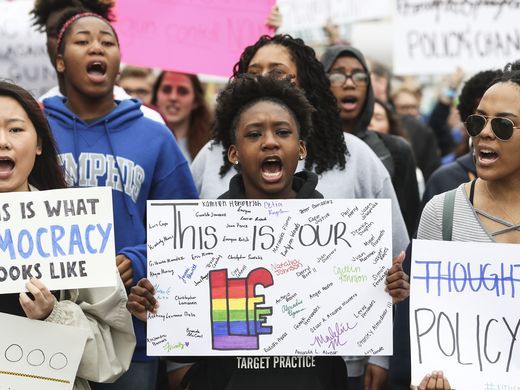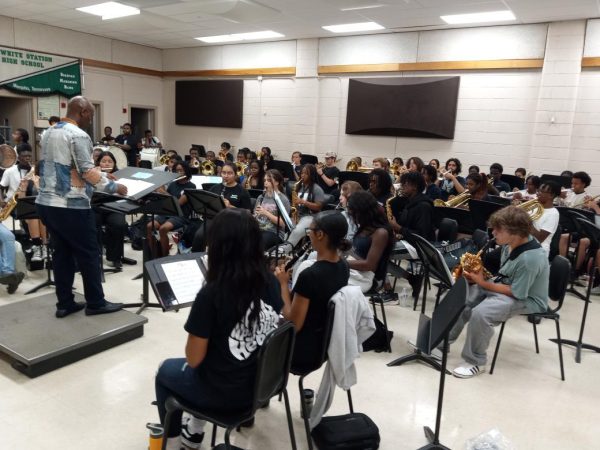The State of our Union: Guns and Mental Health in America Today

Students protesting on March 24 at the March for our Lives.
The students at Stoneman Douglas High School are using their voices again to announce nationwide marches on March 24. Designated as the March for Our Lives, the rally’s mission is to demand that the lives and safety of students are priorities, and to call for an end to gun violence and school shootings.
The tide has followed to Memphis as well, where we have our own March for Our Lives march scheduled to stand in solidarity with the students in Parkland, Fla.. With these marches, proponents are trying to do just one thing: make meaningful change to stop putting kids’ lives at risk as they try to attain an education.
“Students are planning a walkout during the later part of March, which is something I look forward to, to show solidarity with the victims and families that were affected,” Senior Class President Kennedy Roberson said.
One of the main proposals heard in regards to keeping students safe from potential mass shootings involves putting funds toward building up school building security. Many lawmakers have proposed increasing the number of security guards and officers at schools, while others have investigated the costs of better securing school borders and entrances. Parents and school board members across the country oppose these proposals as they can be seen as detrimental to the learning environment of any school.
“White Station doesn’t need to be a prison,” Shelby County Schools Board Member Billy Orgel said. “You don’t need to feel like you’re in a prison to go to school everyday.”
Despite gun control being a highly polarized issue, most people agree on the importance of acknowledging mental health. Although it has been stigmatized, the tragic shootings have thrown mental health in the limelight and opened up the conversation. Faculty and peers at Stoneman Douglas knew the shooter, Nikolas Cruz, was a deeply troubled individual. The loss of his mother and the subsequent turmoil led him to exhibit behavioral problems, not only at home, but also on social media.
“You hope that by spotting them [mentally-ill students], knowing their behaviors, getting intervention in for them, that it doesn’t get to that,” Orgel said.
The Florida Department of Children and Families also detailed a range of conditions that Cruz was diagnosed with, including depression. Had the school administration addressed these issues, the outcome of the situation could have been drastically different, but that is a subject of debate. What we can do is prevent students from resorting to murder as a release.
Your donation will support the student journalists of White Station High School. Your contribution will allow us to purchase equipment and cover our annual website hosting costs.






































